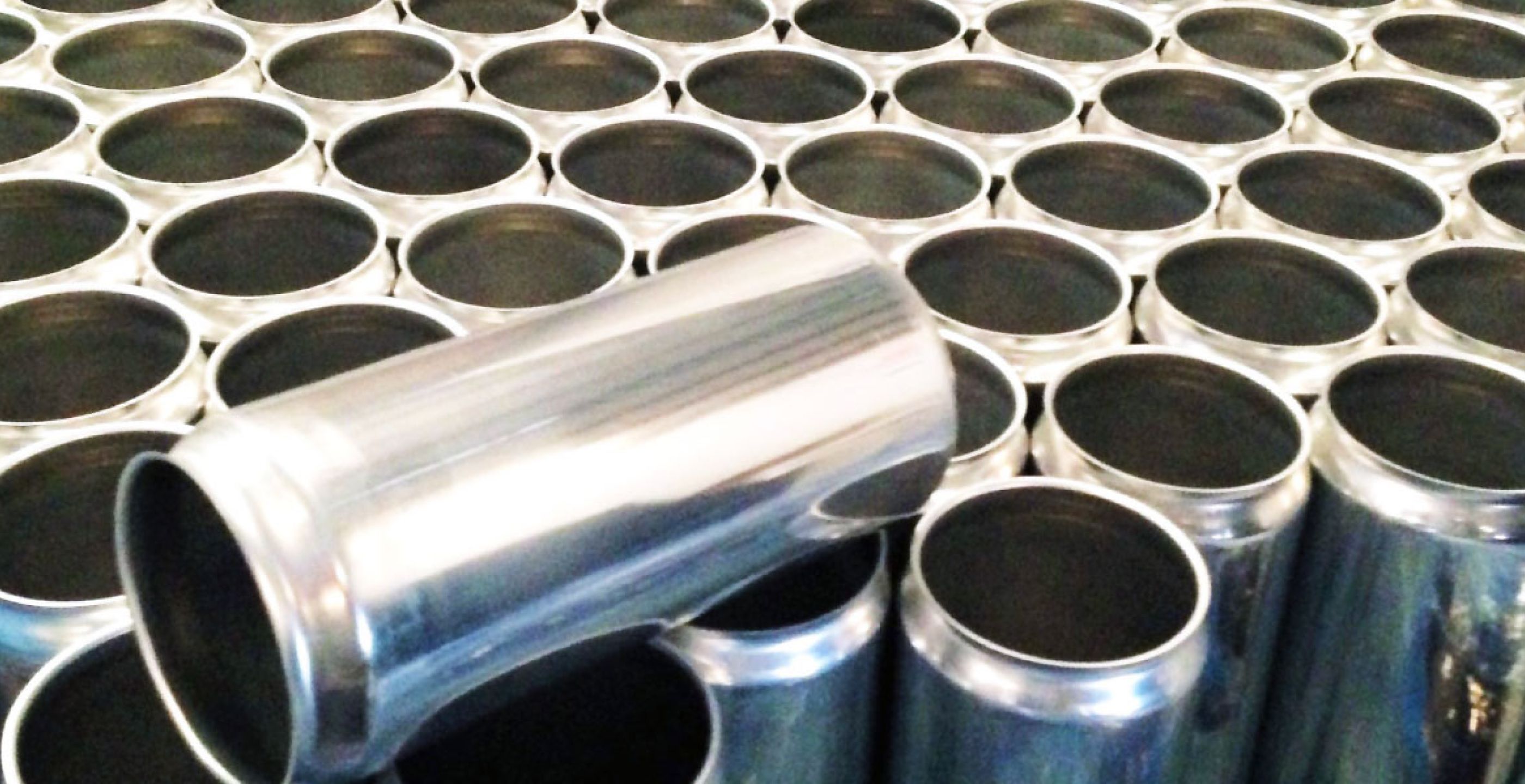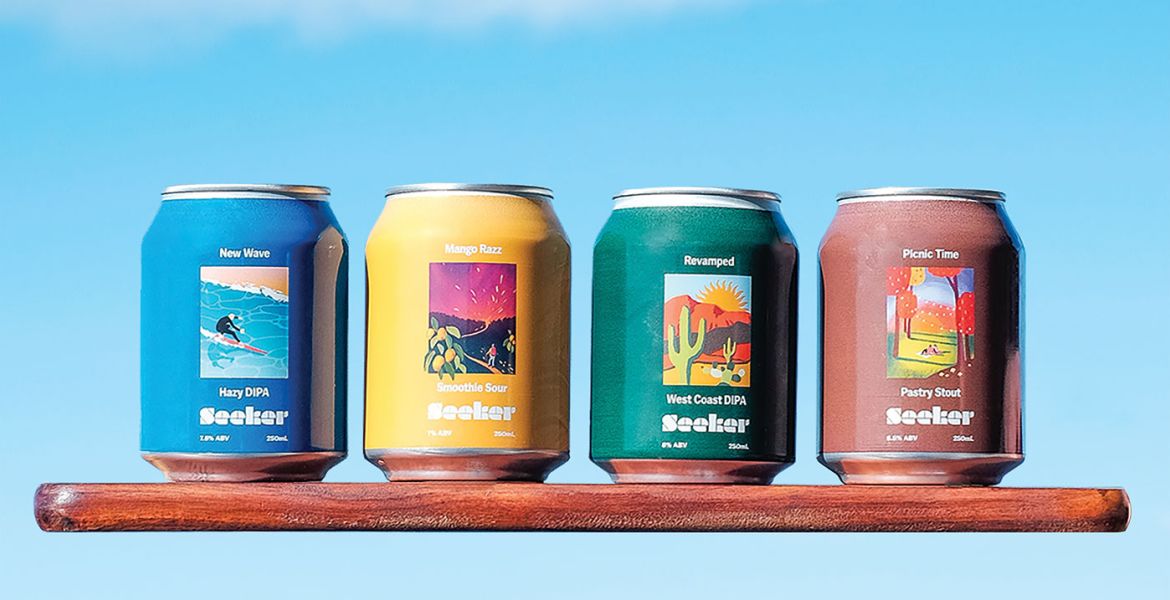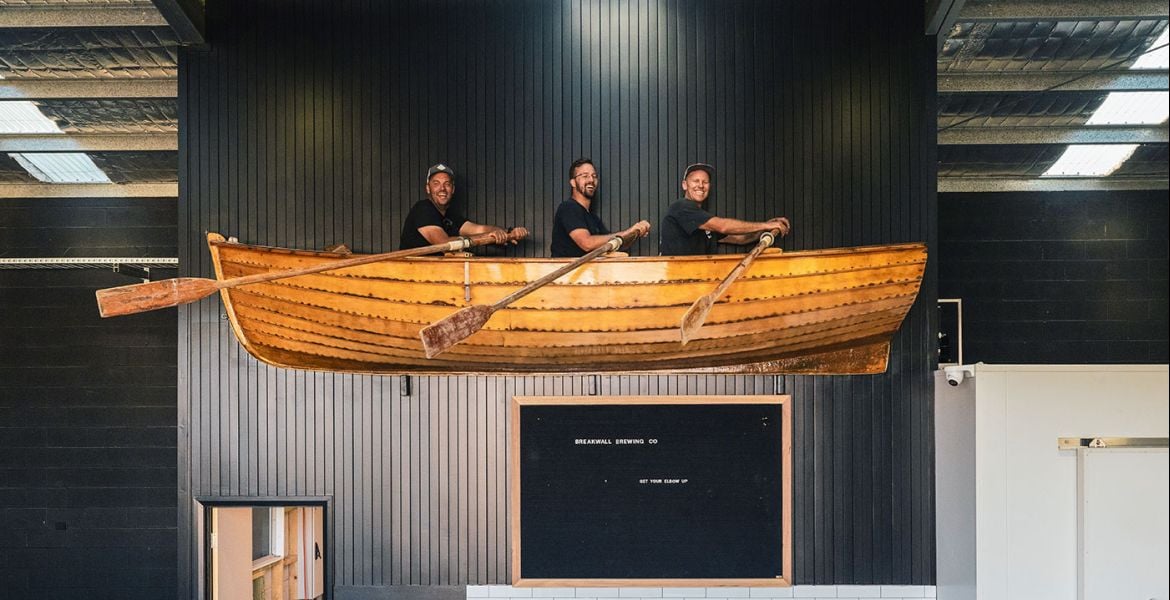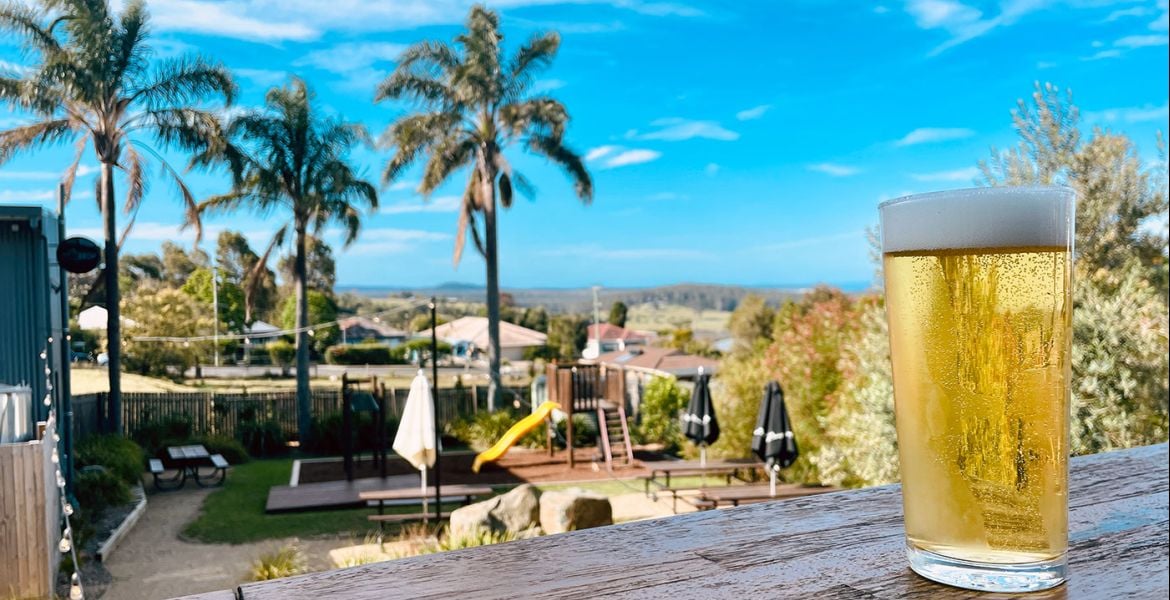You’d be hard-pressed to find anyone who has a problem with a government introducing new legislation to reduce litter. Yet the New South Wales’ Container Deposit Scheme (CDS), due to come into force this Friday (December 1), has many of the country’s small brewers and distributors up in arms at its potential effect on their businesses and the subsequent higher cost of beer for consumers – as well as questioning how effective it is as an environmental measure.
With just days until the scheme goes live, brewers say they remain in the dark about many aspects of its implementation, are concerned the small end of the beer world is impacted more greatly than other industries, and worry that the new legislation effectively punishes any small brewers looking to regularly release bottled or canned specialty beers.
Take into account confusion over how growlers and CANimals will be affected and news that the 360 degree cans used by BentSpoke and Colonial may be outlawed in New South Wales from December 2019 and you have a situation causing consternation throughout the industry, with one brewer and distributor claiming he may be faced with pulling all short-run beers out of the state.
“I’m sure the government’s not there to fuck business up,” says Johnny Latta, co-owner of Northern Beaches brewery Nomad Brewing and distribution company Experienceit Beverages, “but obviously this has been rushed through so quickly and all they’ve done is consult with the major commercial brewers.”
When the CDS comes into effect on Friday, it is effectively bringing the state in line with similar schemes in South Australia and the Northern Territory and means consumers in New South Wales will be able to obtain 10 cents for each container they return.
The aim is to reduce the amount of litter produced by the state each year, with the Environmental Protection Authority (EPA) stating that drink containers make up 44 percent of the total volume of litter in NSW – an estimated 160 million drink containers per annum. The agency’s website says the introduction of the CDS “will help meet the Premier's goal of reducing the volume of litter in the state by 40% by 2020.”
While the scheme has noble and laudable intentions – and Queensland, Western Australia and the ACT are looking to bring in similar initiatives over the next few years – a growing number of people in and around the beer industry believe the CDS needs to be delayed; some also believe exemptions should be provided to small breweries.
Already, exemptions already exist for wine and spirits sold in glass bottles (see the full list of containers included and excluded here). Yet any brewer using a glass bottle of the exact same dimensions will have to register their beers and produce new labels for those bottles solely because of the type of liquid inside.
According to an EPA spokesperson, this is to keep it in line with the schemes already operating in SA and NT (the former introduced 40 years ago) and also because they believe bottles of wine and spirits are less likely to end up as litter than those filled with beer. Hypothetically, it's a theory that says a $40 bottle of one of Wildflower's barrel aged blends or Nail Brewing's annual, high-end Clout Stout release is more likely to be found in a bush than a $5 bottle of cleanskin wine.
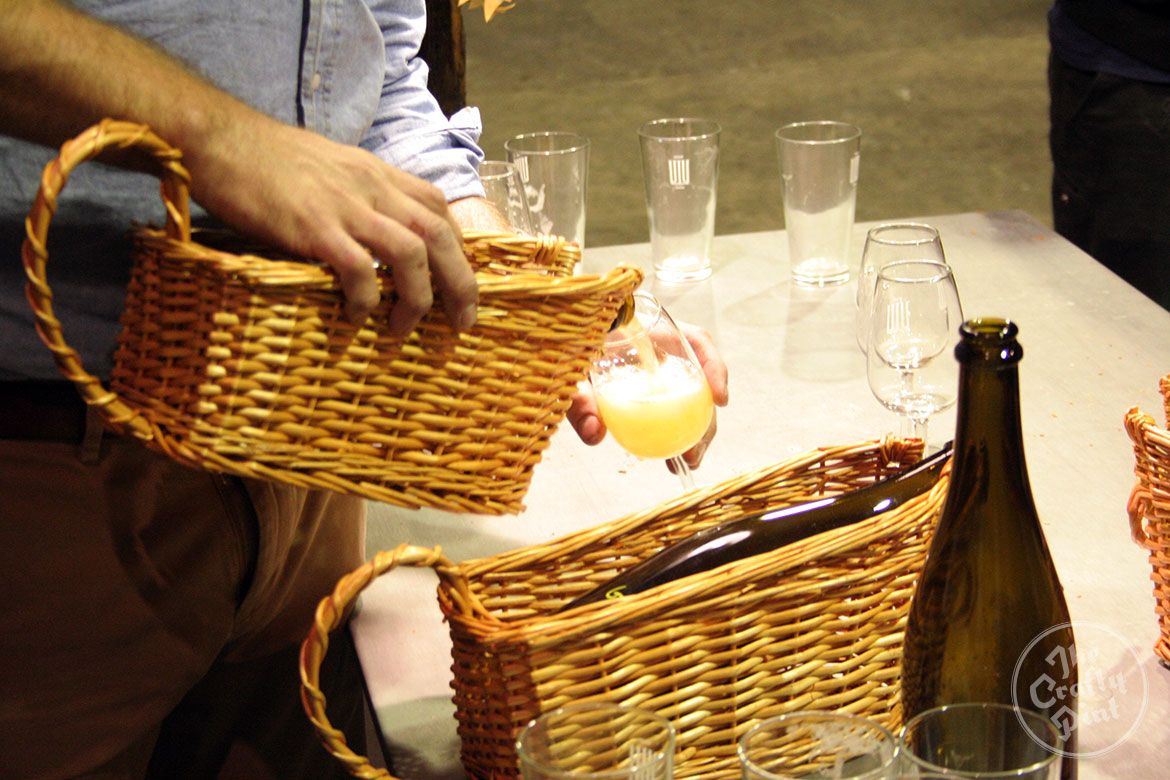
Then there is the cost impact; those behind the CDS expect brewing companies will pass any additional cost onto the consumer, who can claim their 10 cent per container refund if they return their beer cans and bottles to an agreed location (and should benefit from a cleaner environment). However, breweries are to be charged between 12 and 14 cents per container, with the final figure yet to be confirmed as the cost of running the scheme is still to be finalised.
On top of the individual container fee, any brewing company or importer wanting to sell beer in NSW will be charged an $80 fee to register each individual packaged beer in their portfolio with the EPA.
“The price of a bottle is going to go up,” says Phil O’Shea, of Five Barrel Brewing in Wollongong. He regularly produces 500 bottle runs of his specialty beers for his local audience. He says the new fees – registration plus cost per container plus new labels – would add 30 cents per bottle before the brewery adds any margin, potentially pushing the retail cost of a bottle of IPA from $6 to $7 or $8 by the time it reaches the consumer.
"We've actually got on to our local member and probably one of the most concerning things is that the EPA has ignored his request for information at least three times that we know of," says Phil.
"To the layman, it doesn't make a whole lot of sense that these exemptions are in place; wine producers produce just as much glass as beer."
According to an EPA spokesperson, registration of each individual product line is necessary to ensure all eligible containers are captured by the scheme.
“The registration process generally takes between a week to two weeks for a new supplier to register and get containers approved, depending on the number of containers,” the spokesperson says.
Those eligible containers can be returned to hundreds of collection spots and “reverse vending machines” across the state. Where those collection spots will be remains unknown; at the time of publication, the EPA website says their exact location is “coming soon”.
According to the EPA website, containers must also be “empty, uncrushed, unbroken and have the original label attached”. Aside from meaning you’d best stop any BBQ guests from crushing their empties, it suggests anyone hoping for fewer cans or bottles littering their local park must hope the litterers leave them in pristine condition. What's more, some venue owners have raised concerns: if a drinker absentmindedly peels the label off a bottle while consuming it, the venue loses the ability to claim the refund on that bottle.
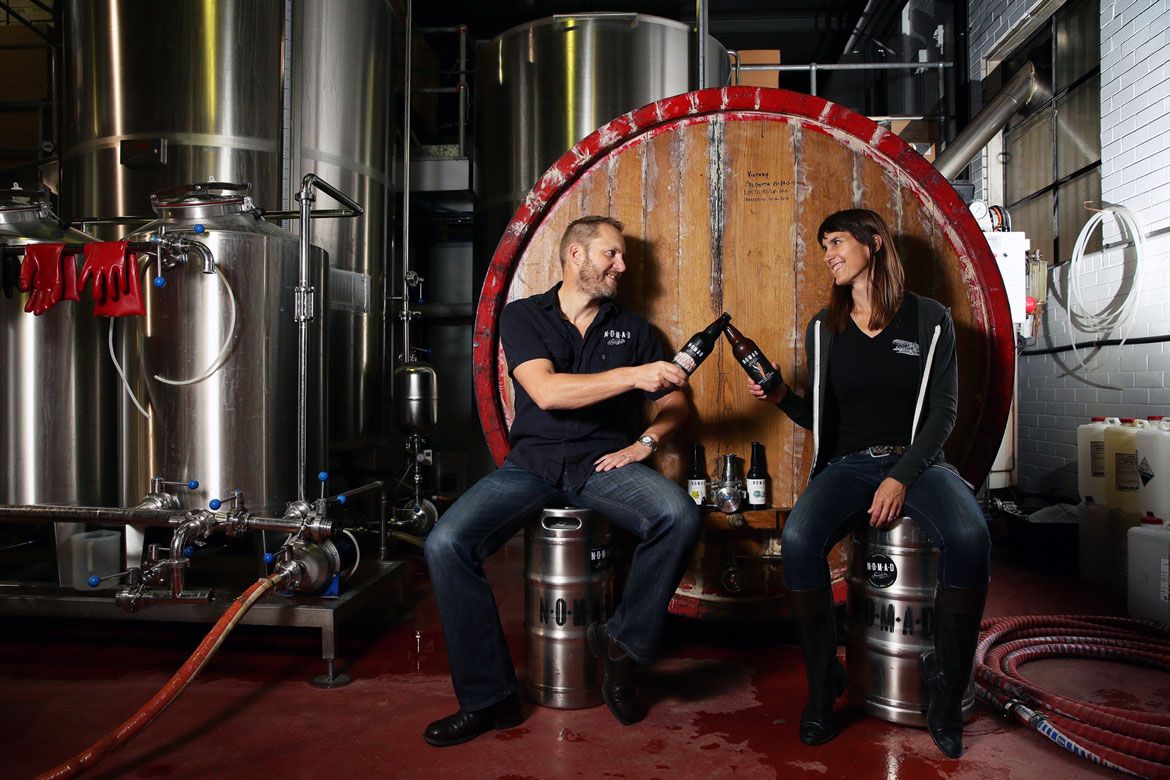
Nomad and Experienceit founder Johnny (above left with wife Kerrie at their Northern Beaches brewery) has been increasingly vocal about his concerns in recent weeks.
“The biggest thing for me is just how poorly this whole thing is thought out and how many questions I have which nobody can answer for me,” Johnny says.
He says he is faced with an immediate bill of $24,000 and, as the owner of a business which can carry 80 to 100 new lines each month, says the $80 admin fee per line will significantly affect his bottom line. Due to the nature of many of the international breweries' beers Experiencit seeks to import, the business regularly brings only a small volume of rare (and premium) beers into Australia; under the CDS, they may no longer be able to justify bringing those beers into the state.
“The only solution is I don’t sell them in New South Wales, so New South Wales’ drinkers just miss out on all the new stuff,” Johnny says.
That $80 fee also only covers a five year period, with Johnny estimating an ongoing cost close to $30,000 to register his products every five years.
The organisation coordinating the CDS, Exchange for Change, is a joint venture run by Coca-Cola Amatil (CCA), Asahi, Carlton & United Breweries (CUB/AB InBev), Coopers and Lion/Kirin. Coopers, Lion and CCA also run the South Australian scheme.
Johnny believes the bigger brewing companies – most of whom now own at least one formerly independent Australian brewery (CUB/AB InBev with 4 Pines and Matilda Bay; CCA with Feral; Asahi with Mountain Goat and Cricketers Arms; Lion/Kirin with Little Creatures, White Rabbit* and Byron Bay Brewery) – will be better able to absorb the price rises than smaller ones.
“We’ve now got a $5 gap on top of an already premium product,” he says, “so the commercial brewers are now going to be able to go and screw the independent brewers even more.”
When the CDS was announced, many expected the scheme to work like those that already exist in Australia. However, Johnny says there are key differences; most notably, in SA and NT, there is a cap on registering lines of $1500 per business, rather than $80 per unit with no cap.
“My argument is that [it] was 40 years ago you installed [the first scheme]," he says. "Forty years ago, we didn’t have recycling bins supplied by council in every single household in the state.”
As well as the cost, Chris McNamara, executive officer of the Independent Brewers Association (IBA), is concerned at the level of information provided to both brewers and consumers.
“The thing here is the lack of an education campaign either by the government or the consortium for the consumers out there,” says Chris, adding that the price of beer has gone up in most locations because producers have already been invoiced by the consortium.
“They haven’t done a very good job of talking to the industry or trying to understand our concerns.”
As the launch has approached and more questions have been asked, other potentially significant consequences have arisen, such as the future illegibility of the cans used by BentSpoke and Colonial, which allow drinkers to remove the until lid and use them like a glass.
“Under the Regulation, metal containers will not be allowed to have a ring-pull mechanism or any other opening mechanism that involves the complete removal of part of the metal container,” an EPA spokesperson says. “This would include 360 end cans.
"However, the restriction will only be enforceable on and from 1 December 2019 to allow any existing suppliers to transition to alternative packaging.”
BentSpoke, which views Sydney as a significant market, says their belief is that cans with 360 lids are better for the environment than glass bottles with removable lids. But, if the CDS remains as it is, BentSpoke and Colonial will have to either change their cans or not sell in packaged form in the state that consumes more beer than any other in Australia. Furthermore, Colonial has recently been informed its 360 lids are approved for sale in the Northern Territory, highlighting a discrepancy from market to market.
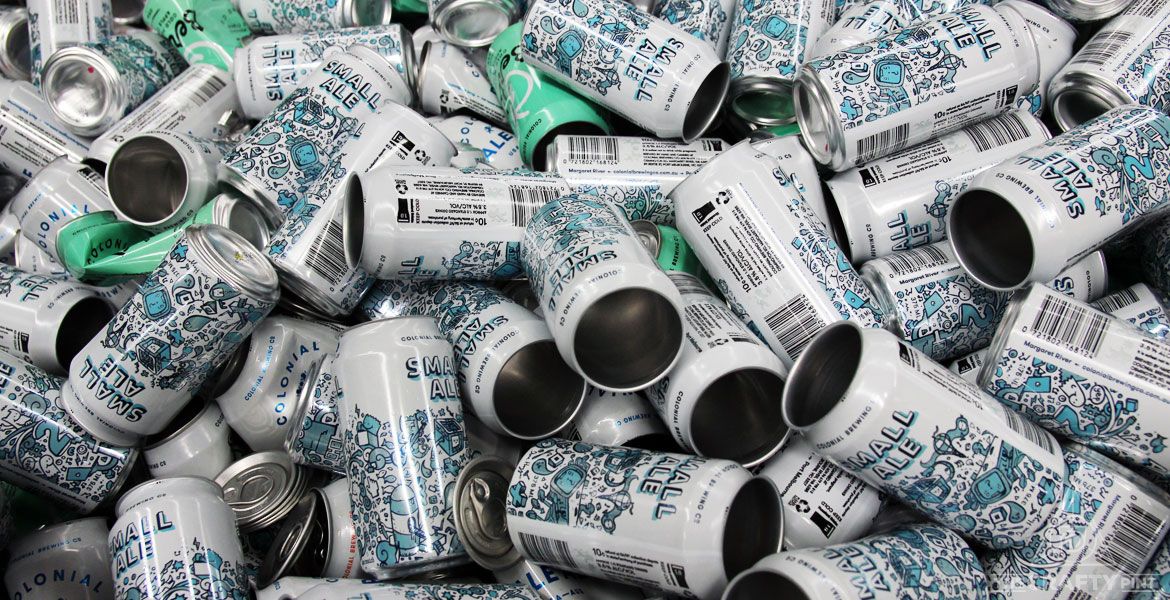
Another unresolved area concerns breweries who offer growler and CANimal sales from their taprooms. If they fill growlers or CANimals to order for customers at their venue, they won’t be affected. But, if they have been pre-filling them to save time when busy, those beers and containers would need to be registered.
Even here, this doesn't take into account just how a refund could be claimed on such containers. Will the reverse vending machines be set up to handle CANimals and who exactly is going to want to recycle a $25 branded two-litre growler for 10 cents?
Then there are those questioning the scheme's effectiveness on environmental terms.
"I don't actually see this as an environmental initiative, to be completely honest," says Phil. "To me, [it's become] a roundabout tax on craft beer. I don't think it was their intention but [the CDS] makes it less competitive for us to be in the marketplace."
He suggests a more positive move could be to offer incentives to manufacturers producing bottles or cans using 100 percent recycled materials.
"If you create a commercially competitive price [for a locally produced, recycled product] that means the industry doesn't need to keep flying cheap glass into the country," he says. "This [the CDS] should be an initiative to solve those problems.
"If you take the carbon tax, that was a way to change behaviour: to make people use less electricity. It was the same for water restrictions – making people realise there was a water shortage. [The CDS] won't change behaviour. It might increase kerbside recycling [but in the craft beer industry] it won't do much because we're recycling already."
With conversations ongoing and multiple representations being made at state and federal level, the issue is very much a live one.
“Going forward, we’d love to revisit that inclusion of wine and spirits," says Chris of the IBA's stance, "and we’d love to know why a premium style of beer like our members produce shows up in the litter stream.”
Where to now?
The CDS comes into force on Friday, December 1, 2017. All eligible containers must be registered with the EPA by that date. Breweries with existing labels or packaging will be allowed to keep using them until December 1, 2019, rather than being forced to dispose of existing stock.
However, with only a few days until the scheme comes into effect, calls are mounting for a postponement.
Last week, the Liquor Stores Association NSW & ACT called for the CDS to be delayed, saying there are too many flaws for it to begin.
Johnny also wants it to be delayed until the aforementioned issues are resolved and the state government can explain why small breweries are seemingly disadvantaged.
The Crafty Pint raised concerns that small brewing companies were being affected adversely compared to peers in other industries with the EPA but, while we received responses to other questions, have not had an answer.
*Lion (then Lion Nathan) had a 25 percent stake in Little World Beverages, which founded Little Creatures and White Rabbit, before buying the business outright.
About the author: Will Ziebell is a history graduate who finds the greatest use for his degree is telling anecdotes to anyone who will listen. Often they involve beer, especially when hosting Melbourne Brewery Tours. He can be found on Instagram and Twitter.



